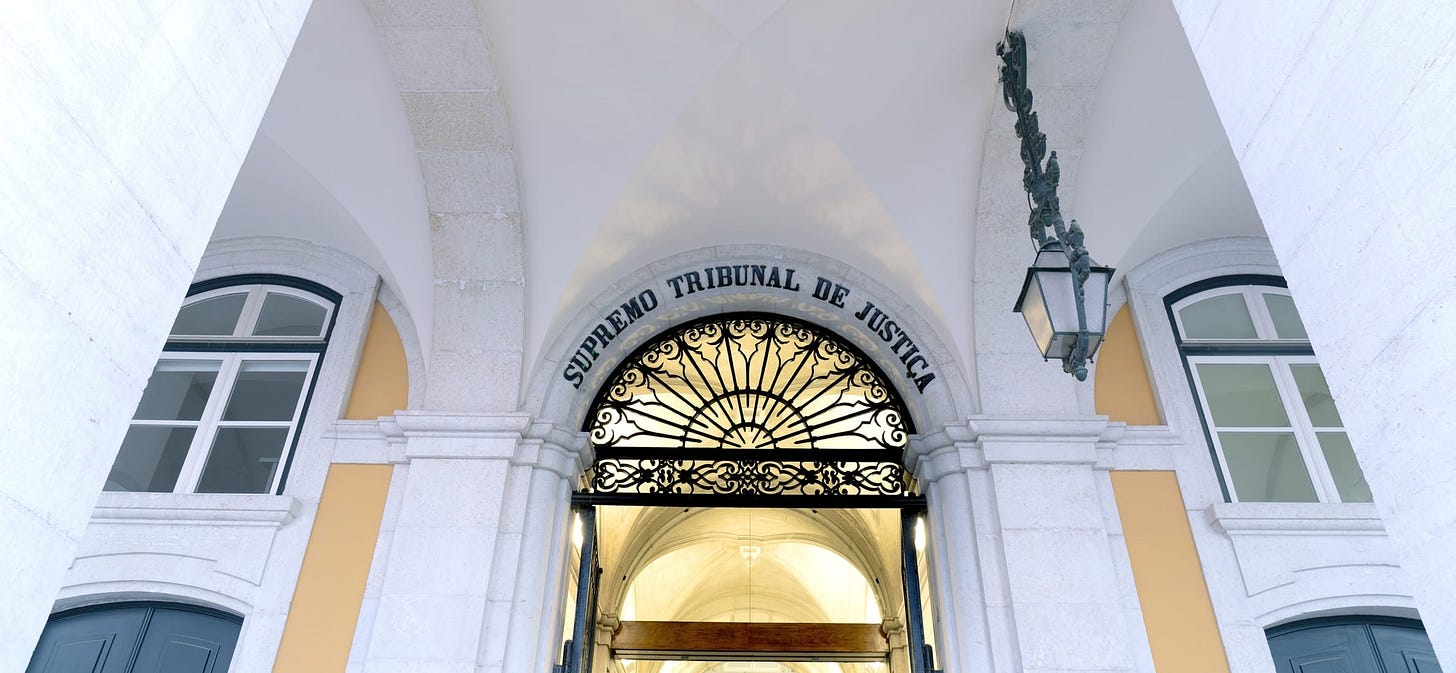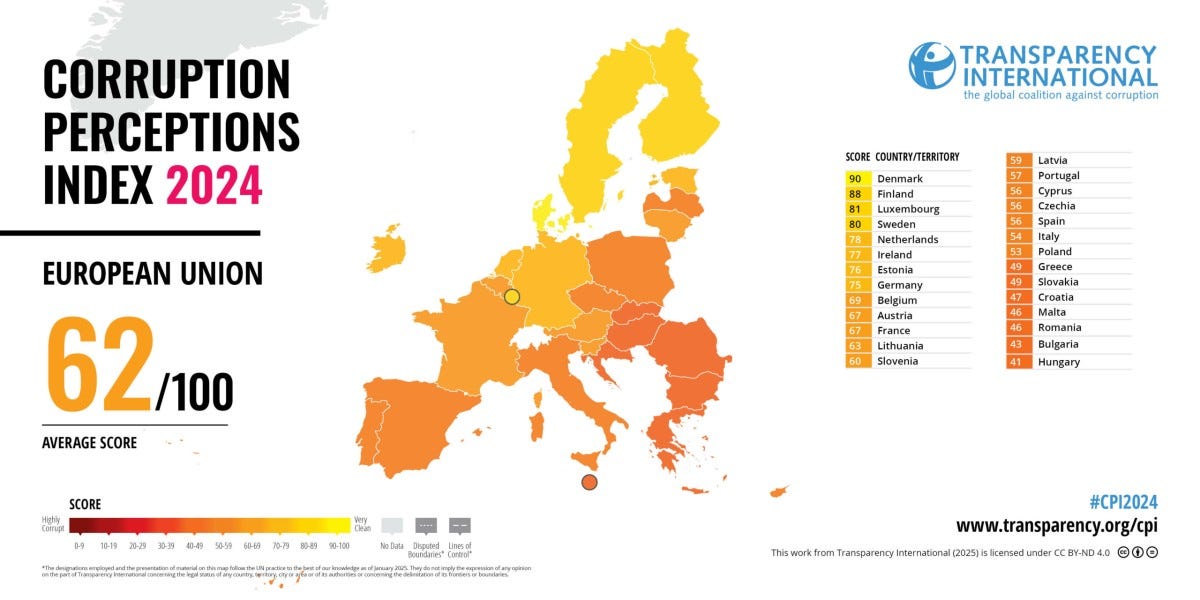Portugal hits record low in Corruption Perception Index
It is below the European average but sill ahead of other EU Member States such as Spain, Italy, Poland and Greece.

Portugal has fallen nine places in the 2024 Corruption Perceptions Index (CPI), marking its worst performance to date.
The country now ranks 43rd out of 180 nations, with 57 points on a scale from 0 (highly corrupt) to 100 (highly transparent). Transparency International (TI) attributes this decline largely to the perceived abuse of public office for private gain, citing high-profile cases such as Operation Influencer.
According to Transparency International Portugal (TI Portugal), Portugal has been in continuous decline since 2015, with its performance in 2024 ranking among the worst in Western Europe.
The country now shares 43rd place with Botswana and Rwanda but remains ahead of European peers like Spain and Italy.
The organization highlights failures in public integrity mechanisms, weak enforcement of anti-corruption laws, and a lack of transparency in political funding as key contributing factors to the negative ranking.
However, in an interview with RTP, the president of Transparency International in Portugal, Margarida Mano, stated that the Corruption Perceptions Index is not based on “general public perceptions” but rather on 11 sources and the assessments of experts who evaluate different countries using “the same criteria” - she didn’t reveal what these criteria were.
Factors Behind the Decline
TI Portugal points to several reasons for Portugal’s poor showing. These include ineffective anti-corruption measures, weak oversight of public institutions, gaps in conflict-of-interest prevention, and insufficient enforcement of asset declarations by politicians.
The report also notes persistent issues of nepotism, political favoritism, and a slow judicial system, which undermine public confidence in the government's ability to tackle corruption.
The organization also stresses that Portugal scores below the European average in public sector corruption perception, with recent scandals like Operation Influencer exacerbating concerns about the close ties between politics and business.
While Portugal has introduced new legal mechanisms to combat corruption, TI Portugal warns that their implementation and enforcement remain inadequate.
Urgent Call for Reform
Margarida Mano, president of TI Portugal, emphasized that the results serve as a warning of reputational damage due to the country’s failure to take effective action.
She pointed to long-standing structural problems, including lack of political commitment and low effectiveness of anti-corruption measures, as well as recent scandals that have further eroded public trust.
TI Portugal is calling for a clearer anti-corruption strategy, faster judicial processes, greater transparency in the public sector, and stricter regulation of lobbying.
The organization also urges stronger financial support for anti-corruption bodies, such as the Transparency Authority and the National Anti-Corruption Mechanism (MENAC), to ensure their independence and effectiveness.
Additionally, TI Portugal advocates for tighter controls on politicians’ assets and incomes, enhanced selection criteria for public office, and stricter measures against the ‘revolving door’ phenomenon, where politicians transition into lucrative private-sector roles after leaving office.
Presidential Response and National Concern
President Marcelo Rebelo de Sousa expressed concern over Portugal’s declining corruption ranking, stating that anti-corruption mechanisms must be continuously improved.
Speaking to journalists at the Portuguese Red Cross headquarters in Lisbon, he described the negative trend as alarming and reiterated his previous warnings about the issue.
Rebelo de Sousa emphasized that corruption is not just about actual wrongdoing but also about public perception, which directly impacts trust in governance.
He stressed the need for judicial reform, increased investigative resources, and a more efficient transparency body, which took years to establish. He also noted that delays in key government reforms, such as the dissolution of the Foreigners and Borders Service (SEF), have real consequences for the Portuguese people.
He further pointed out that Portugal’s perceived corruption decline aligns with similar trends in other European and Portuguese-speaking countries.
However, he warned that the key issue remains how Portuguese citizens perceive the effectiveness of anti-corruption mechanisms.
The Corruption Perceptions Index (CPI), created in 1995 and revised in 2012, evaluates corruption levels in the public sector using data from independent organizations.
Transparency International Portugal is part of a global anti-corruption coalition operating in over 100 countries, dedicated to research, advocacy, and raising awareness of corruption’s causes and consequences.




